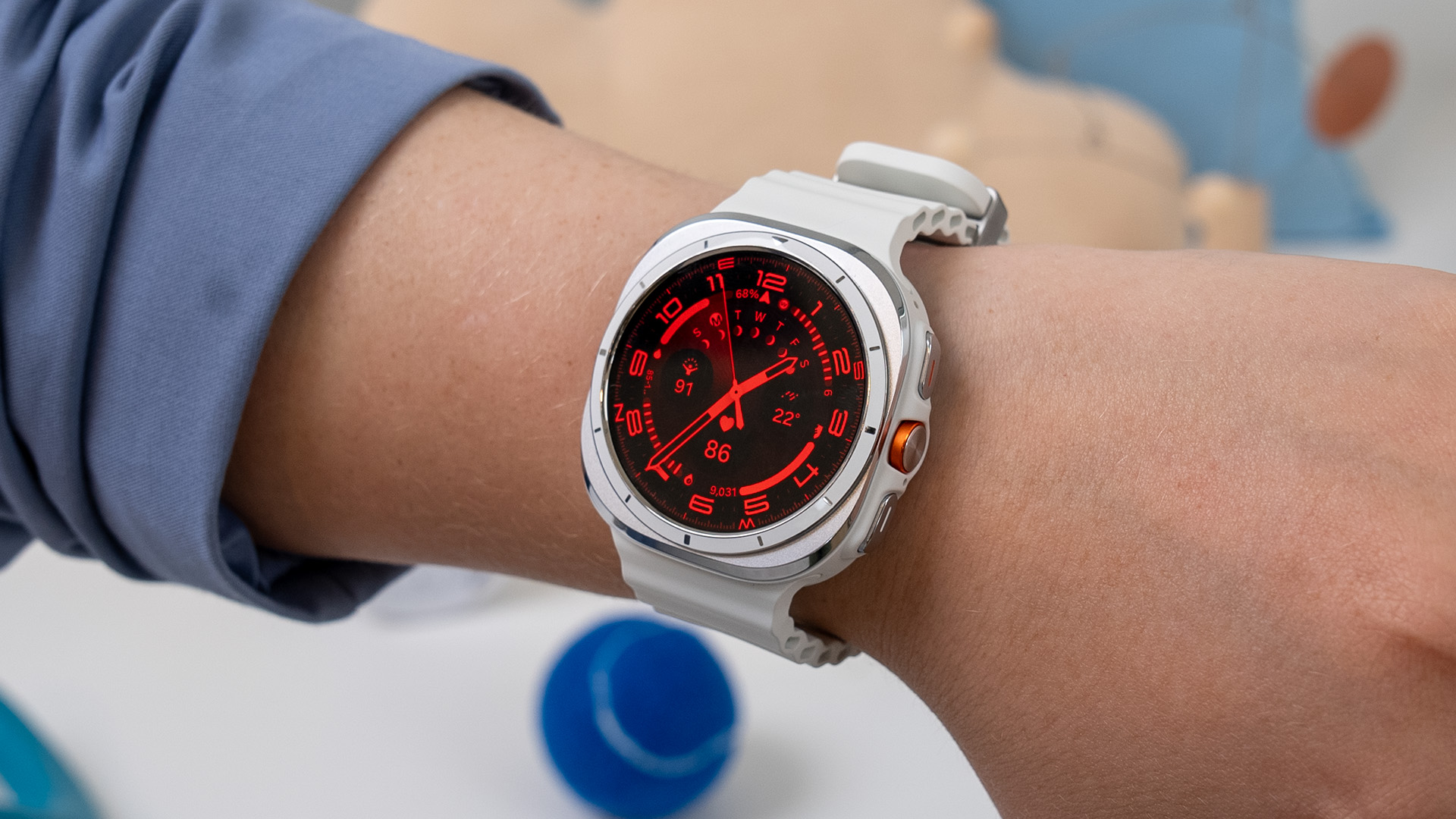
In all the years Samsung has complemented its flagship smartwatch with some kind of secondary model, the Galaxy Watch Ultra is probably the most exciting one yet. It takes the company's core smartwatch features and elevates them with a rugged look, longer battery life, quick button and more. Though Samsung watch fans might lament the lack of a physical rotating bezel on a $649 timepiece, the Galaxy Watch Ultra is a suitable answer to the Apple Watch Ultra overall.
Now, there's no denying Samsung drew heavily on the Apple Watch Ultra's success for its own Ultra watch. There are several design elements and features that are borrowed, but there are some ways Samsung tried to make it special. For example, the Galaxy Watch Ultra comes in three color options, including a Titanium White finish that I am simply enamored by; however, there are some peculiar limitations you won't find on the Apple Watch Ultra 2 or other premium sports watches, for that matter.
It also has the same Galaxy AI-powered health experiences available for the Galaxy Watch 7, as well as Samsung's latest BioActive sensor and new 3 nanometer processor. Beyond that, everything else you'll need to know about this watch, and whether it's right for you, can be found in my full Samsung Galaxy Watch Ultra review below.
Samsung Galaxy Watch Ultra review: Cheat sheet
- What is the Galaxy Watch Ultra? The Galaxy Watch Ultra is Samsung's premium-tier smartwatch designed for sportier users.
- What is the Galaxy Watch Ultra price? The Galaxy Watch Ultra costs $649.
- What is the difference between Galaxy Watch Ultra vs. 7? The Galaxy Watch Ultra is made with higher-end materials like titanium, has and added Quick Button, and a longer-lasting battery life. That said, the software and fitness-tracking features are the same between the Galaxy Watch Ultra and Galaxy Watch 7.
- Are there special Galaxy Watch Ultra bands? There are 3 bands designed specifically for the Galaxy Watch Ultra. They include the Marine Band (good for water activities,) the Trail Band (good for outdoor terrains,) and the Peakform Band (good everyday activity band.)
- How is the Galaxy Watch Ultra battery life? The Galaxy Watch Ultra averages about two days, or 48 hours, of battery life in our testing. It can last up to 100 hours with power saving mode enabled.
Samsung Galaxy Watch Ultra Specs
Samsung Galaxy Watch Ultra hands-on: Price and availability
The Samsung Galaxy Watch Ultra is available as of July 24, 2024. Unlike the Galaxy Watch 7, the Ultra comes in just one 47mm size option with LTE support for $649. That's $50 less than the Apple Watch Ultra, but still Samsung's most expensive smartwatch to date.

Samsung Galaxy Watch Ultra review: The Ups
Premium materials and color options
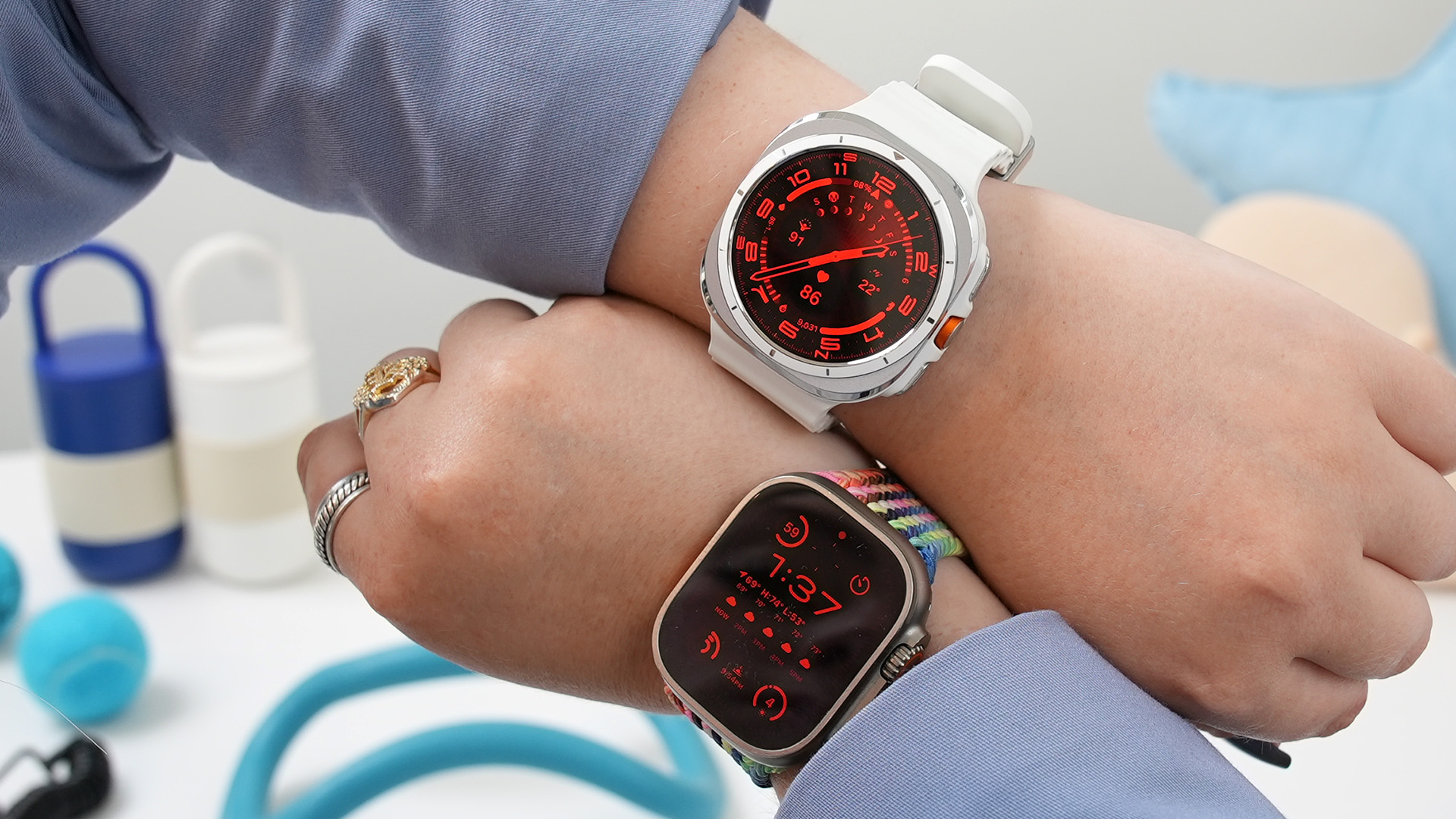
In order to maintain Samsung's circular smartwatch legacy, the company basically cushioned a 3,000-nit, 44mm rounded display inside a squircle-shaped chassis. It's not quite as square-like as the Apple Watch Ultra, but the visual similarity is clearly there.
You can get the Galaxy Watch Ultra in Titanium White, Titanium Gray or Titanium Silver, which present some of the best-looking finishes I've seen for any smartwatch ever. What's more, the watches are meant to be worn with a collection of three new sporty straps — all interchangeable, of course. This includes options such as the Marine and Trail bands, available in colors that complement the different titanium finishes.
From a durability standpoint, the watch is meant to withstand harsh conditions under the MIL-STD-810H as well as water up to 100 meters. The aerospace-grade titanium is also highly scratch-resistant, so you won't have to worry too much about roughing it up during your outdoor activities.
Added Quick Button is useful
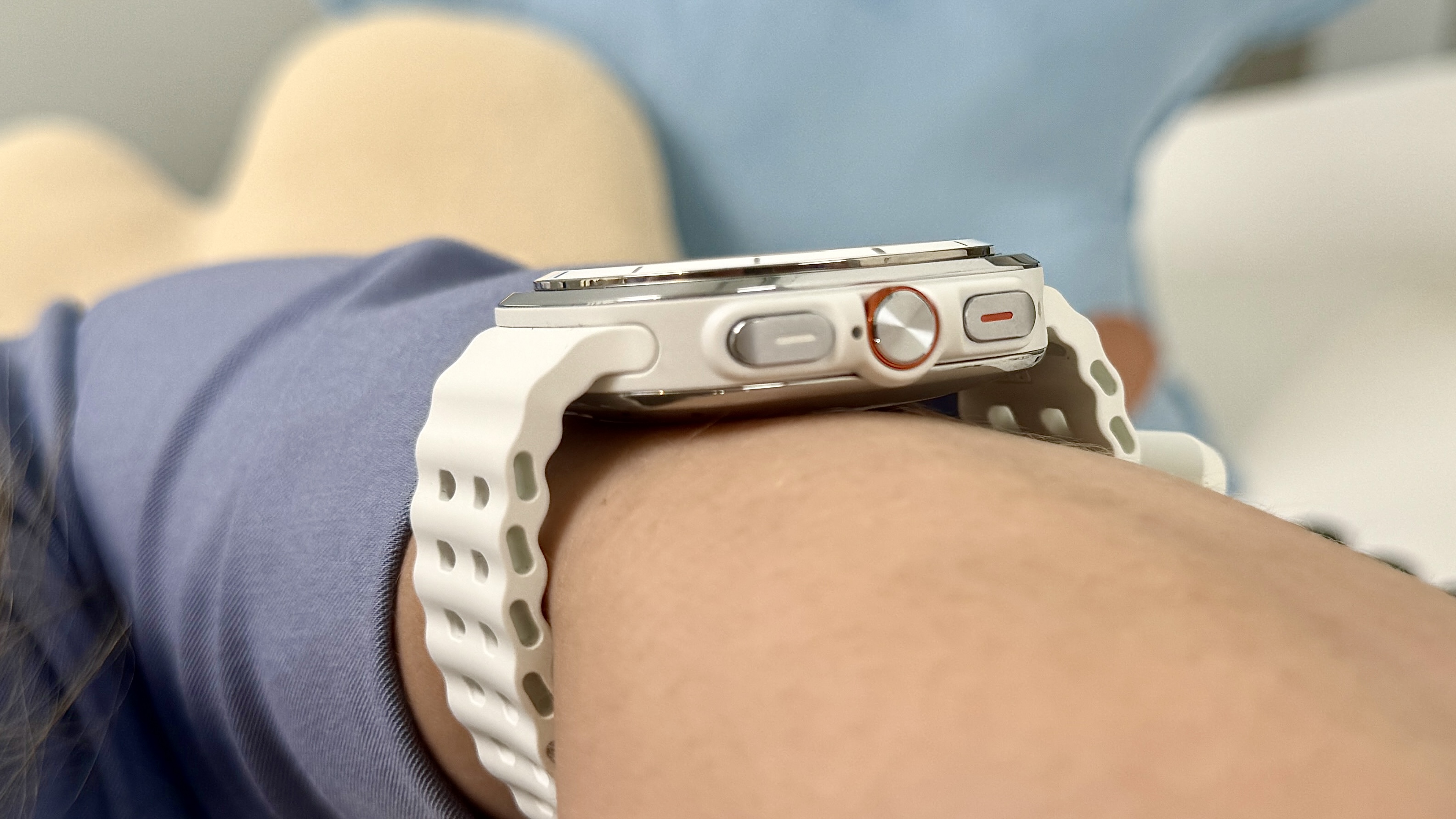
The familiarity between the Apple Watch Ultra and Galaxy Watch Ultra extends to the added orange quick button nestled between the existing two side buttons. This button can be used to assign a function such as launching a workout, logging intervals, opening the flashlight, or triggering the watch's 85 decibel safety siren. You can assign this function in the Galaxy Watch Ultra's settings. I alternated between a few during testing and ultimately landed on the flashlight function as my favorite.
Moreover, I like using buttons in lieu of a touchscreen when possible. This way, the display stays fingerprint-free. If you're wearing gloves or have wet hands, buttons are more reliable to use, too. I will say I wish Samsung took things one step further by including the physical rotating bezel, but I suspect the fan-favorite mechanism might've limited the watch from a durability standpoint. Either way, the addition of the Quick Button is certainly welcome.
Accurate sensor readings
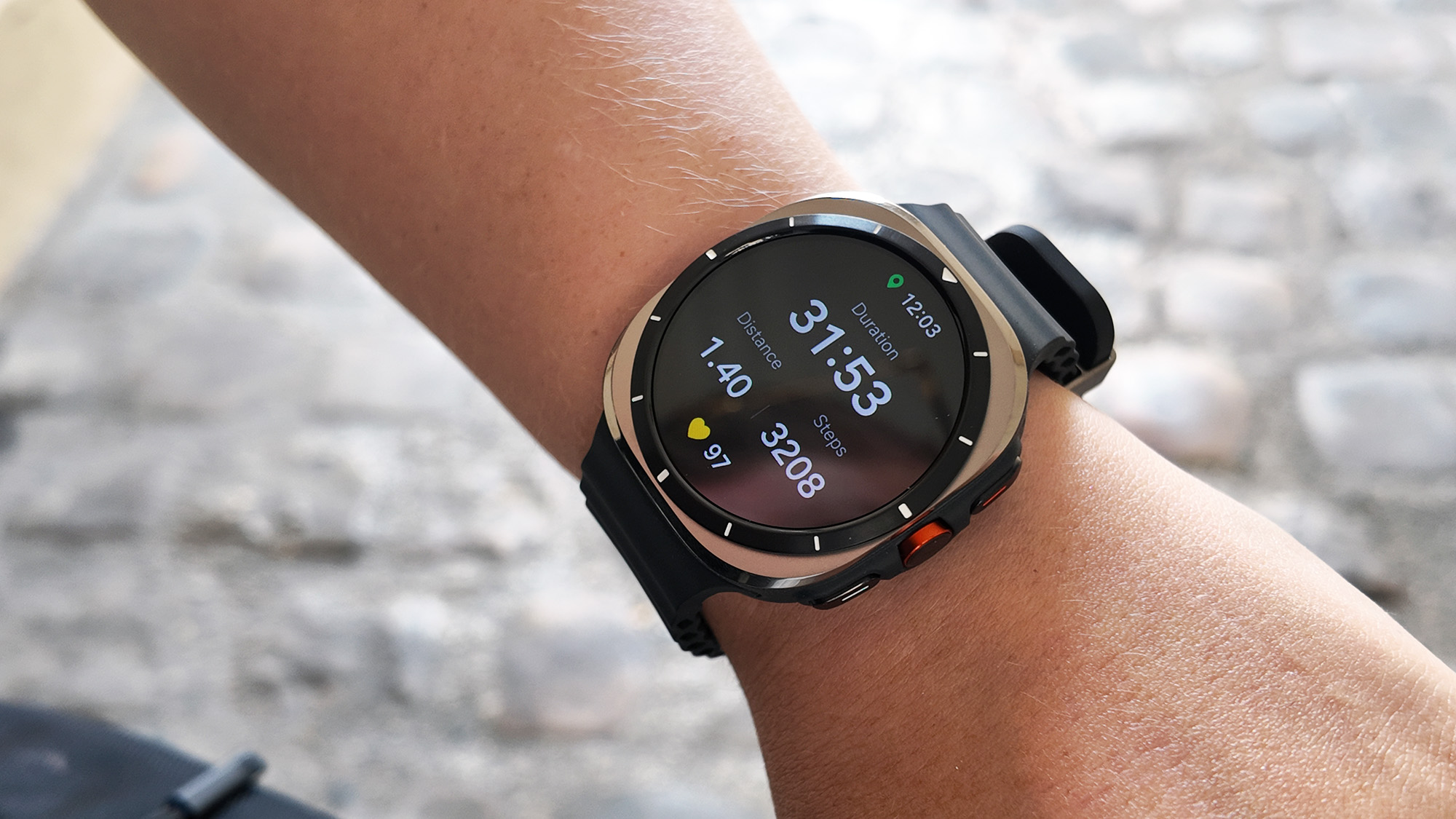
The Samsung Galaxy Watch Ultra delivers Samung's holistic health-tracking experience, incorporating the basics you'll find on most of the best smartwatches (ie. automatic workout tracking to sleep monitoring) with some special features. What's new is the Multisport tile, Functional Threshold Power (FTP) biking metrics, and personalized heart rate zones that help you run at your optimal intensity. In terms of things like step counting and heart rate readings, the watch matched my controls very closely.
Health-based features on the Galaxy Watch Ultra are powered by Samsung's updated BioActive sensor, which is a combined PPG heart rate/ECG/blood oxygen reader and bioelectric impedance analysis (BIA) sensor that can read body composition. These points of data collection feed a slew of new Galaxy AI features like Energy Score and the latest sleep AI algorithm.
Energy Score is pretty neat, and I especially liked competing with myself daily to get higher scores. I'm not sure that the associated AI-generated tips are that useful, but more education is better than less. Samsung is also quite advanced when it comes to sleep tracking insights, and I appreciated the various sleep markers and generally accurate reflection of my sleep quality.
Galaxy Watch Ultra also gets the Advanced Glycation End Products (AGEs) Index, a score of metabolic health and biological aging informed by lifestyle and dietary habits. Of all the health and activity features, this one I'm most torn about. On one hand, your AGEs Index can be a sign of potential health risks. On the other, it's questionable to serve up a metric that many people don't have a basic understanding of (I had to do lots of my own research to only kind of understand,) potentially causing alarm based on the results. I also have no way of checking whether the readings are accurate against a control unless I make an appointment with a specialist.
Solid battery life
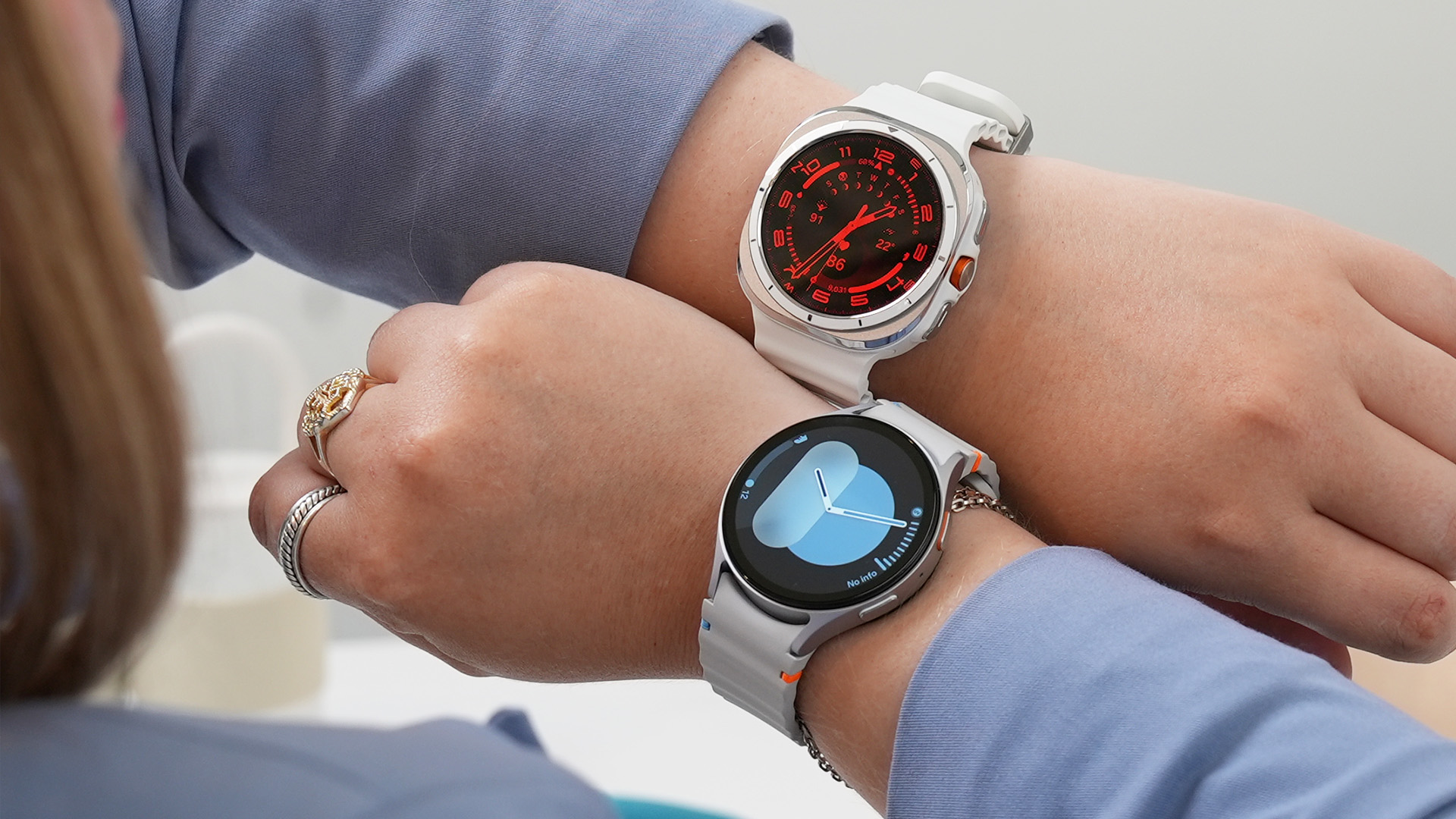
Battery life is looking like a big reason to consider the Galaxy Watch Ultra over the Galaxy Watch 7. According to Samsung, the Galaxy Watch Ultra lasts up to 100 hours in Power Saving mode, or just over 4 days. With Exercise Power Saving, which still uses continuous GPS to track workouts, the watch can last up to 48 hours.
That said, under normal use, my Galaxy Watch Ultra lasted just about two days. That would be on par with the Apple Watch Ultra, and speaking from experience, it makes a major difference to be able to go two nights in a row without needing to charge.
It's a bummer that the Galaxy Watch Ultra can't accept reverse wireless charging from a Samsung phone like previous-gen watches. I recharged the watch with the included magnetic charger, and it took nearly two hours to juice the watch back up. IMHO, fast charging should be a standard for the premium tier of smartwatches. But at least the watch itself lasts long enough.
The downs
Many features require Samsung phones
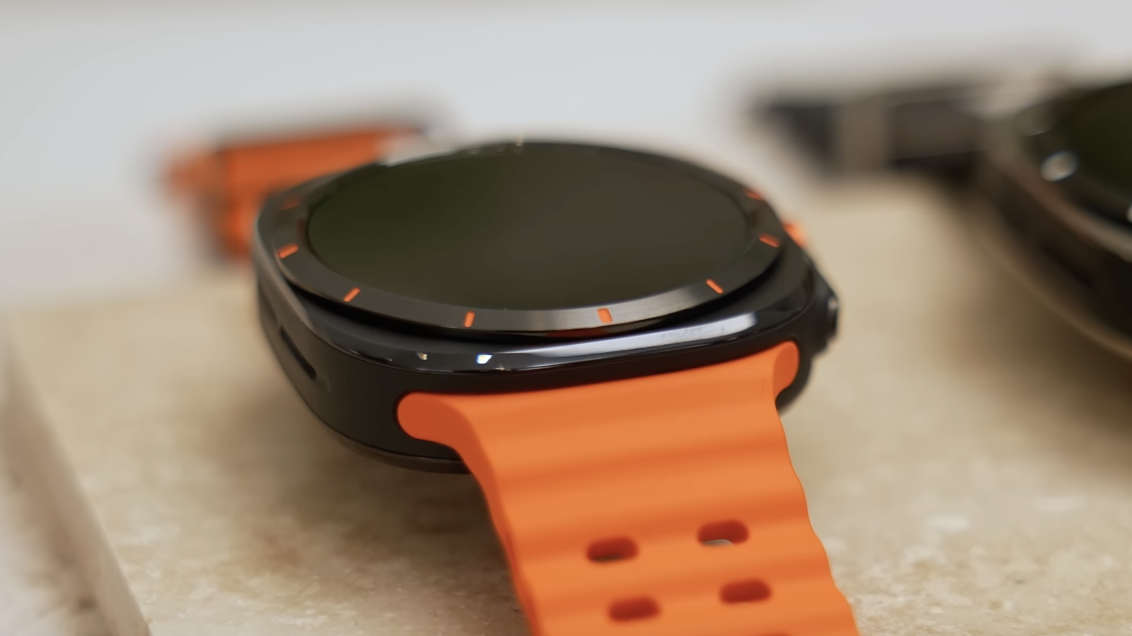
Although the Galaxy Watch Ultra is technically compatible with any Android smartphone, a majority of the best features require you to own a Samsung phone. For example, to use the FDA-cleared sleep apnea detection and ECG readings, you need to download the Samsung Health Monitor app.
Irregular heart rhythm notifications and all Galaxy AI features, such as the Energy Score and Wellness Tips, require a Samsung phone with up-to-date software. But then to use the new Double Pinch gesture (yes, comparable to the one Apple debuted with the Apple Watch Series 9 last year) you need to have a Samsung smartphone running One UI 6.1.1. At launch, that only includes the Galaxy Z Fold 6 and Galaxy Z Flip 6, so I couldn't use the Z Fold 5 that I normally use for Android watch testing.
Thankfully my colleague let me borrow his Z Flip 6 review unit to try it out, but I don't think customers should be encouraged to buy a new phone just to be able to use their new smartwatch's features from day one.
Limited use for water sports
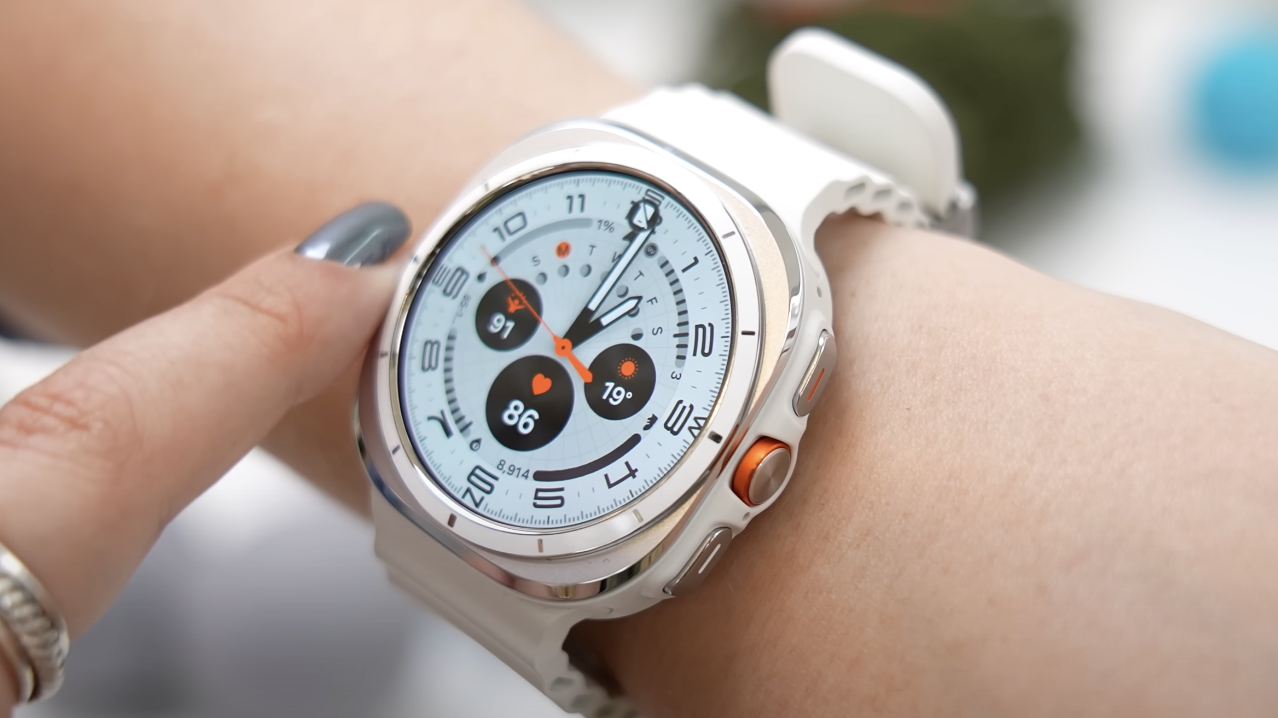
Although I am not personally a deep sea diver, I've enjoyed speaking to Apple Watch Ultra users in recent years about how the watch functions as a dive computer. Despite the Galaxy Watch Ultra being rated for similar depth abilities, it's not actually suitable for things like waterskiing and yes, diving. 'Not suitable' is Samsung's own words from the press release:
"Galaxy Watch Ultra is water resistant with an IP68 rating based on the lab test conditions for submersion in up to 1.5 meters fresh water for up to 30 minutes. It is not suitable for high-pressure water activities and diving."
Considering the first Galaxy Watch Ultra image that pops up on Samsung's website is the watch bubbling in water, I would say the limitations are a serious miss. Sure, if you're just going swimming in a pool or ocean for a bit, the Galaxy Watch Ultra can track that workout. But many smartwatches can do the same for hundreds of dollars less.
Similar performance to the cheaper Galaxy Watch 7
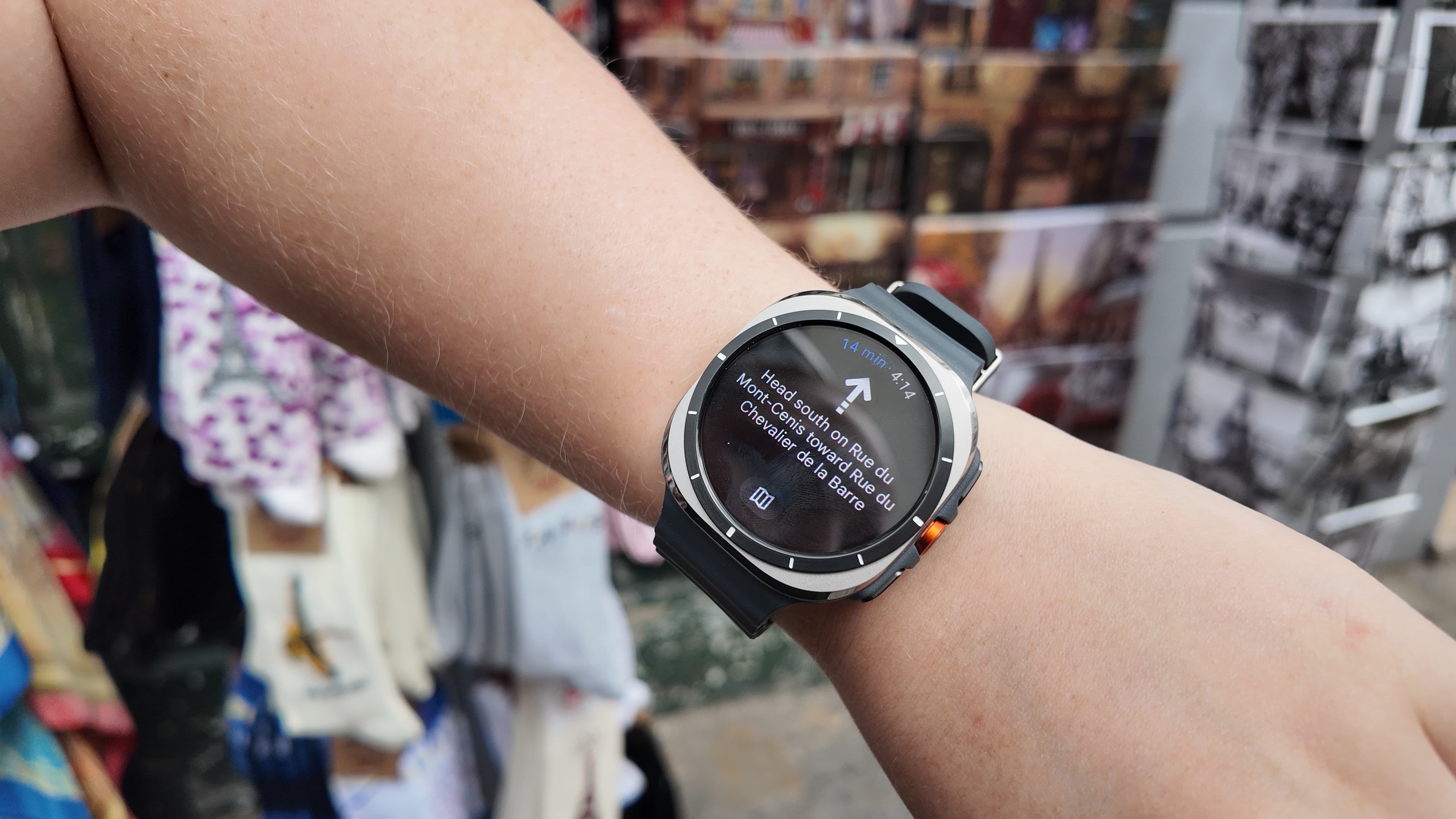
Given this Galaxy Watch's "Ultra" branding, I was hoping it would get some more "Ultra" features — specifically, those that you can't get on the Galaxy Watch 7 flagship. Think about the Samsung Galaxy S24 Ultra vs. the standard S24: while it's true they all have the same Snapdragon the Ultra model gets better cameras and included S-Pen.
I don't know that the Galaxy Watch Ultra offers enough to create a true distinction between the Galaxy Watch 7. They have the same 3-nanometer processor, same BioActive sensor, same Wear OS 5 software with One UI, same Galaxy AI features, and same Double Pinch gesture. It's just in a different package, albeit a nicer-looking package. Are looks enough to justify spending $650 vs. $300? Everyone has their own priorities, but for me, even one exclusive feature would help the Ultra's case.
Samsung Galaxy Watch Ultra review: Verdict
Although I'm skeptical whether the Galaxy Watch Ultra is truly more premium than the Galaxy Watch 7 enough to justify the higher price, it's still a successful smartwatch. Perhaps I wouldn't be so tough on it in this review if it didn't beg to be compared to the Apple Watch Ultra. Yet between the athletic design and longer battery life, the Galaxy Watch Ultra is the Apple Watch Ultra for Samsung users.
Still, at $649, it's an investment. As I've noted, it delivers in the design category, and Samsung Health with all its features is a very fulfilling fitness-tracking experience. Being accustomed to smartwatches that only last a day on a full charge, the Galaxy Watch Ultra's multi-day battery life is a selling point.
I don't foresee the Galaxy Watch Ultra reaching the same popularity as the Apple Watch Ultra, especially not among non-athletes. My biggest question is if this watch is just a one-off, or if we'll get a Galaxy Watch Ultra 2 next year.







